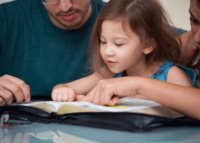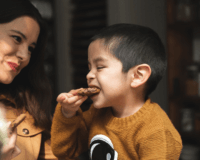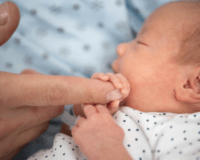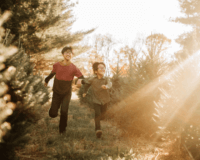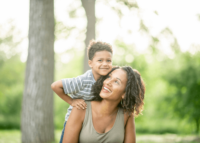Releasing my grip on my almost adult child

My daughter is a “late bloomer” when it comes to driving. Thanks to COVID slowing things down with government agencies, she got a driver’s permit later than planned.
By the time she got her permit, at the age of 17, I spent hours on the road with her (30 to be exact), my fingers tightly gripping the door handle of the passenger’s seat, as she made wide turns that had my stomach rolling and abrupt stops and jerking starts that sent all the stress hormones spiraling throughout my body.
A tight grip
One day, I looked down at how my hand was gripping the door handle, knuckles white and palm sweaty and I realized, this is the true symbolism of parenting. It is a lifetime of holding on and trusting. But it’s also slowly releasing the grip, finger by finger.
It is waking up at 2 am and praying that her heart will change. It’s dropping her off at a party, not knowing what temptations she will encounter but letting her go anyway. It’s checking the online grade book and wondering why she doesn’t have the inner drive to study just a little bit harder to bump her score up.
It’s trusting that the friend who picks her up to take her to an event isn’t texting and driving. It’s realizing that she is her own uniquely, fearfully and wonderfully made human, placed here for such a time as this.
As much as I try, I doubt I’ll be releasing my entire metaphorical grip anytime soon. The saying goes that the days are long but the years are few. I disagree.
These teen years have been especially long.
Life lessons to learn
I recently attended church on Baby Dedication Sunday. On this day, at the end of the service, the pastor called parents up with young children who wanted to publicly declare they would strive to raise their child in a Christ-centered home.
I’m sure every church in the country has a variation of this. At our church, each family was given a glass jar filled with buttons. Each button was to symbolize how many weeks the families had until their child turned 18. It was a sweet moment, and a special reminder of how little time we have with our children in our house.
But it got me thinking. As I write this, my firstborn child is 15 weeks away from turning 18. By no means do I feel that I have done enough as a mother to prepare her for this world.
There are still so many life lessons she needs to learn—life skills she has yet to encounter that involve taxes, bills, credit, appointments, insurance, grocery shopping, and cooking, to name a few.
Do I feel that she is truly ready for the real world? On a deeper level, is she prepared for temptation, heartbreak, betrayal, disappointment, loss, and trials of all kinds I can’t even yet imagine?
Our heavenly father knows us best
Neuroscience tells us that the prefrontal cortex in the brain, the area where we are able to make clear decisions and control judgment, doesn’t fully mature until around the age of 24 for females, two years ahead of male development at 26.
I often wonder why as a society we are so ready to usher our children into the “big, bad world” at the age of 18. We give them keys to the car, pack up the trunk, and send them off, completely unsupervised, to live with other humans whose brains are also not fully developed.
To my own fully-developed, logical brain, this practice doesn’t make sense. But we do it every August.
No symbolic buttons in a jar can prepare me for letting her into this world as a legal adult. In the last 18 years I have learned that God’s plan for her life is very different from my own.
I learned that I can’t force her away from pain. I learned that I have very little control in the choices she decides to make. I learned that while those early baby/toddler/elementary years were physically exhausting, the teen years have held a special emotional weight that I wasn’t prepared for.
While she may continue to gain new freedoms in this new season of life, I will still be here to help her navigate the journey of adulthood. I will still be praying and trusting that ultimately, her heavenly father loves her and knows her better than I ever could.
He knows the number of purple-dyed hairs on her head. He knows every fear, every middle of the night wake-up, every bit of confusion she faces.
And I can trust that he will guide her path, even when I’m not there gripping the door handles.
Consider a few extra resources:


